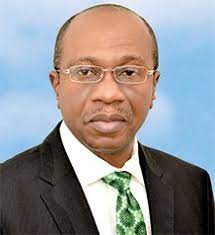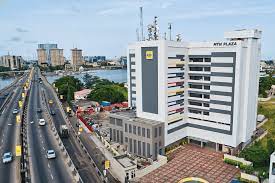
By David Akinmola
The Association of Senior Staff of Banks, Insurance, and Financial Institutions (ASSBIFI) has said the new policy on cash withdrawal limits by the Central Bank of Nigeria (CBN) should give room for financial inclusion.
Stating that Nigeria has not attained the level of financial inclusion, the group said the policy should create room for inclusiveness, especially in areas where payment platforms like online payment are not made available.
The new National President of ASSBIFI, Olusoji Oluwole, said this during the handover ceremony, where he took over from the association’s immediate past president, Oyinkan Olasanoye.
He said the policy would be a problem if the proper infrastructure was not put in place.
According to him, “to achieve a cashless environment, it is not just banks, it will involve the banks, power sector and the telecoms sector, which all must be up and running, if not nothing will happen right.”
Hoping for a review of the policy, Oluwole described the policy as a tougher situation coming into an already tough situation.
Noting the pros and cons of the policy, he said: “The pros enhance the cashless society but it should be a cashless society where there is inclusiveness. We have people who are in an environment where they don’t have inclusiveness. We have people who do not have bank accounts because they cannot provide the minimum requirements to be banked. If these are not addressed it becomes a problem for us. The lack of inclusiveness is the negative part of it.
“The cons are that there is a limit to what you can carry. Our problem with this kind of policy is they always put the cart before the horse. You come out with a policy that you’ll start thinking of how to make it work, rather than working on how it will work gradually before we go on to full implementation.
“When we look at the charges, for those who have illicit funds it is not a problem to them but for those with genuine businesses, what the policy has done is to bring additional taxation on them.
“With the minimal profits from small businesses, they pay taxes, and rents and we are asking them to pay money to get their money. What happened is that they are going to shift the problem to the rest of us and we are talking about fighting inflation. Who is going to bear the cost? We are looking at it critically, by looking at the problems faced and solutions required. It goes beyond the impact of the policy on our workers; it cuts across the entire economy. It would have been good if they had invited stakeholders, which is supposed to be the normal thing. Coming out with that kind of policy suddenly is a problem for us without coming out with clear-cut reasons.”
Meanwhile, the new ASSBIFI boss has promised that his administration would be all-inclusive, transparent, and centered on welfare, rights and privileges, and life after work of members.
He implored the Federal Ministry of Labour and Employment and the Nigeria Employers’ Consultative Association (NECA) to intervene and impress on employers and management in the financial sector to review the sector-wide Collective Bargaining Agreement (CBA), which expired in 2007.
He noted that some of the conflicts in the sector would have been nipped in the bud if the CBA had been reviewed.
He stated that the continued delay in reviewing the CBA might force the labor movement to report Nigeria at the next International Labour Conference of the ILO.





